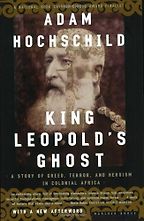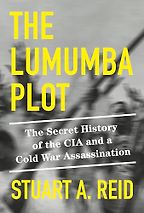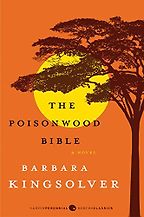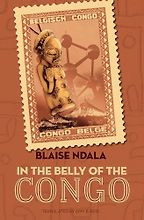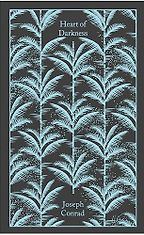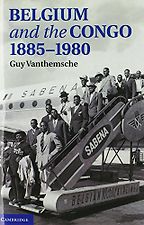Democratic Republic of the Congo
Last updated: February 12, 2025
The Democratic Republic of the Congo is a vast country that lies at the centre of Africa, on the equator, and has a population of nearly 100 million people. Previously, it was known as Zaire. Despite its immense mineral wealth—including around 70% of world production of cobalt, a key mineral for making rechargeable batteries—it is one of the five poorest countries in the world. Below, some of the books about the Congo that have been recommended on Five Books, from nonfiction books on its history and the horrific war that ended in 2003—to the novels it has inspired.
“This is an incredibly powerful, horrifying, and utterly brilliant study of Belgian colonialism of the Congo and the brutality and genocide that followed in its wake. It is riveting and deeply important; a must-read book and the real Heart of Darkness.” Read more...
The Best History Books to Take on Holiday
Suzannah Lipscomb, Historian
“Siddharth Kara goes, literally, deep into the holes being dug, mainly in the Democratic Republic of Congo, by artisan miners who are pulling rocks from the ground in the most extraordinary circumstances. Kara interviews the workers and the traders who are buying it and, he alleges, putting it into the formal supply chain. There’s a shocking moment where he just throws in that none of them has ever held a mobile phone. And yet, they’re at the very end of the chain that leads to our iPhones and our electric cars. It is a shocking account, and he sets it in the context of the terrible history of what is now the Democratic Republic of Congo – previously Zaire, and before that the Belgian Congo – as a place that has been exploited, from the word go, for these minerals, which could have made its people wealthy and prosperous and well looked after.” Read more...
The Best Business Books of 2023: the Financial Times Business Book of the Year Award
Andrew Hill, Journalist
“From Genocide to Continental War is about the related conflicts in Rwanda, Burundi and Congo: this was the continent’s largest war, happening from the mid-1990s up to about 2003, involving many African countries, and the result was the largest death toll since the Second World War. Between four and five million died in the eastern Congo from about 1998 to 2003, and what Prunier does is to unpick who is involved, why they were involved and what their real motives were.” Read more...
Richard Cockett, Journalist
The Lumumba Plot: The Secret History of the CIA and a Cold War Assassination
by Stuart A. Reid
The Lumumba Plot by Stuart Reid is about what happened when the Congo (now called the Democratic Republic of the Congo, but also called Zaire in the past) became independent from Belgium in 1960. The democratically elected prime minister, Patrice Lumumba, was killed in 1961, paving the way for the dictatorship of Mobutu Sese Seko. Reid follows the story of Lumumba, but also a cast of other characters, including Dag Hammarskjöld, the UN Secretary-General who was killed in a plane accident while on a peace mission in the Congo the same year. It's a well-told story, and a good way to learn about this period of history, which many people who have read Barbara Kingsolver's bestselling novel, The Poisonwood Bible, may be curious about (Kingsolver spent two years in the Congo as a child, in the early 1960s).
“The Poisonwood Bible blew me away when I read it. Barbara Kingsolver is a magnificent writer. I’ve heard people say she’s a woman’s writer, as if it’s some lesser place in the world of writing. These are huge books that go right to the heart of the human condition. I’m so happy to see her get her Pulitzer…This is about a family of Southern Baptists. The father, Nathan, is an egomaniac who is determined to go on this mission, whether it’s wanted or not. He drags his family with him into the heart of the Congo, with this white savior delusion that he is going to save the souls of all these poor, ignorant black people who know nothing and can’t exist in the world. He’s a nightmare. I’ve seen men like this. All the point-of-view characters are female. It’s brilliant.” Read more...
Historical Fiction Set Around the World
Jane Johnson, Historical Novelist
“At the outset, this novel draws us into a family plot, a young woman’s search for her aunt, who disappeared decades before in the chaos of the years leading up to Congo’s independence from Belgium. Ndala paints a compelling picture of his heroines—and of the passion that lead to Tshala’s tragic end—but as he moves between the 1950s and the early 2000s, he keeps his sights and his readers’ on the long- deferred reckoning of Belgium and Congo with their colonial past.” Read more...
Novels from Francophone Africa
Mutt-Lon, Novelist
“Not only is the novel a powerful critique of European colonialism in the Congo Free State during the late 19th century, it’s extraordinarily innovative as literature. Its Modernist style, unreliable narrator, and complex psychological themes were carving an original furrow in the literary landscape of his time.” Read more...
Mike Downey, Film Director
“There are a whole series of studies of the Congo, some of them written with a strong sense almost of wanting to put the Belgians on trial for their engagement with the Congo. This is a book which tries to get beyond those sorts of disputes. It sets out the complicated interrelationship between sections of Belgium and the Congo. We’ve got to remember that the Congo emerges in Belgium’s history somewhat by accident, in the sense that it was the product of an initiative by the king at the time—Leopold II—to create the Congo Free State. It was to be an independent entity, largely financed by his own funds, but soon became a source of finance for his own funds. It was when crises developed about the governance of the Congo in the early 20th century that Belgium, and Belgium’s parliament in particular, took over responsibility for it and turned it into something like a colony, much like other sections of Africa were divided up between other European states.” Read more...
Martin Conway, Historian
“Lisa is an ordinary American who tells the inspiring story of her life-changing decision to help the women in the Democratic Republic of the Congo. Even though she wasn’t a product of rape or war, she decided to do something about the women in the Congo. She led a good middle-class lifestyle with a good job and a good man but she woke up one day and realised that she needed to do something with her life and to contribute to the larger world. So she decided to run marathons in the US to help women in the Congo. For me this story is no different from how the anti-slavery movement originated in England. Even though people there had never owned slaves or been in the countries where the slaves came from, they were people like Lisa whose consciences compelled them to do something.” Read more...
The best books on Women’s Empowerment
Zainab Salbi, Nonprofit Leaders & Activist
